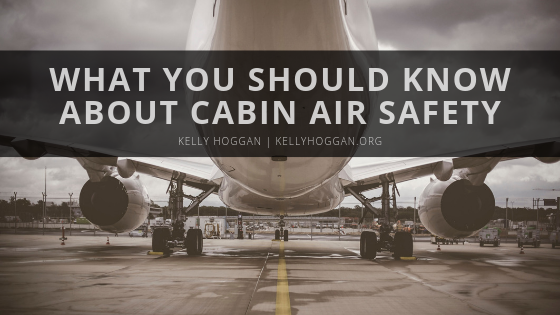It is a common myth that air travelers breathe in old, recycled air during flight. Many believe that illnesses are more easily transferred in an airplane because they are breathing the same air as everyone else. However, your risk at catching any sickness airborne is actually higher in your office space than it is in an aircraft. Quality control onboard commercial airlines ensure that passengers are breathing in safe, filtered air that is free of bacteria and viruses. While the air supply is heavily filtered from bacteria, lawmakers have recently introduced legislation that will enhance air supply and ensure the safety of crew and passengers from harmful toxins and fumes.
Air Filtration on Planes
Most airplanes, unless very small or old, are built with High-Efficiency Particle Filters (HEPA). The HEPA filtration system recycles air almost continuously once every two to four minutes. The International Air Transport Association, or IATA, supports that 99 percent of airborne microbes are captured using the HEPA filters. Recirculated air is either disposed of or sent through HEPA filters which remove contaminants. In the cabin, air never remains static and is equal parts recycled and fresh. Outside air is compressed to a density safe for humans to breathe and is then cooled down in a large chamber where it is mixed with recirculated cabin air. Air present in aircraft cabins is much fresher and sterile than other confined areas. However, the pressure combined with the dryness of the air often leaves passengers feeling more susceptible to coughing and sneezing.
Cabin Air Safety Act
Last month, legislation was proposed to both chambers of Congress to improve the safety of air supply on commercial aircraft. The legislation proposes that carbon monoxide detectors be installed on all aircraft to monitor flights from harmful toxins. Additionally, the legislation outlines the initiative to have all airline personnel, including flight attendants, pilots, first responders, etc., to attend routine training yearly. Training would include direction for responding to incidents that involve fumes and smoke, in addition to a standardized form that would be created by the Federal Aviation Administration to report incidents. Any time an incident is reported, an investigation would need to take place within a week of the incident to identify the causes of the problem and to repair or replace parts on the aircraft. This proposed legislation follows an advisory that was issued last year by the FAA requesting airlines enhance operational procedures and assess policies surrounding odors, smoke, and fumes.
Kelly Hoggan resides in Washington D.C. and is the founder of H4 Solutions, a business which provides aviation security consulting services. With a career spanning nearly three decades in aviation security, operations, and technology, Kelly has been able to utilize that leadership experience to advise clients in the transportation section focusing on aviation security and aviation operations.


